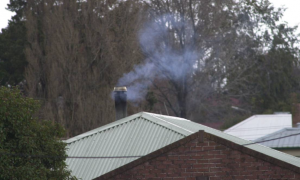

The new data comes as the NSW Clean Air Strategy is released for public consultation today. It was reported that members of the NSW Cabinet sought an amendment to the Strategy to protect fireplaces, after criticism that its approach to minimise the impact of woodfire heater emissions on respiratory health is pushing public limits.
In a new nationally representative survey of 25,000 people completed in November 2020 Asthma Australia asked the Australian public about their attitudes to woodfire heaters and their regulation.
They found most people, particularly those with asthma, support leaving woodfire heaters behind for better, healthier alternatives.
Three-quarters of the general population surveyed (77%) agree that woodfire heaters should not be allowed in urban or built-up areas and over half agree they should be phased out (55%) or banned completely (54%).
Support for regulation was even higher amongst people with asthma with 84% support for regulation of woodfire heaters in urban built-up areas, 71% support for a scheme to phase them out completely, and 65% agreeing they should be banned.
People who are exposed to woodfire heaters said they are largely unable to protect themselves from the smoke, signalling support for government regulation.
When it comes to woodfire heater use in Sydney, just 4.4 per cent of Sydneysiders are burning wood to warm their homes yet this is generating a quarter of all air pollution in the winter.
According to Asthma Australia, woodfire smoke is a significant health risk and the community recognises this.
“After last year’s black summer bushfires, residents of New South Wales now have a full appreciation for the health impacts of woodfire smoke. People with asthma are tired of suffering on their own ,” said CEO Michele Goldman.
Asthma Australia is asking the NSW Government to reconsider its approach to woodfire heaters in the Clean Air Strategy, to back the people whose health depends on clean air today, and to protect the lung health of the community tomorrow.
“We are still to fully understand the long-term impacts on our health from exposure to toxic particles in smoke,” Ms Goldman said.
“We’re not out on a limb in saying we support strong action on this largely avoidable source of air pollution, for the health of our community. There is a small population emitting a big health risk in Sydney’s air.”
Woodfire smoke emissions contain fine particulate matter (PM2.5) associated with a range of health outcomes including adverse respiratory outcomes and mortality. Evidence shows there is no safe level of PM2.5 exposure.
People with asthma are among those who are particularly vulnerable to the health impacts of woodfire smoke leading to increased hospital admission and asthma ED visits.
In the Survey, people with asthma reported they were twice as likely to get respiratory symptoms when woodfire smoke was in the air.
People with asthma constitute 10.7% of the New South Wales community and are among the most vulnerable to it, reporting health impacts at even low levels of exposure.
Ms Goldman added, “It’s good to see that the majority of people realise that woodfire heaters aren’t worth the health impact.”
Asthma Australia is looking forward to providing a submission on the NSW Government’s NSW Clean Air Strategy.






